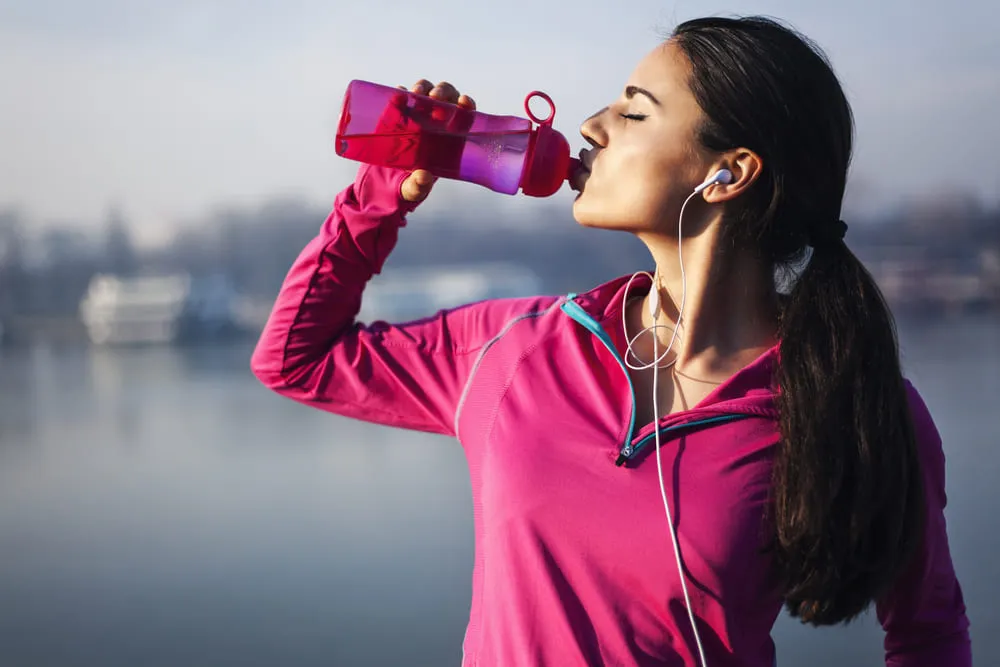


One item makes up 50% to 70% of your body weight, and your body depends on it for survival. It’s plain, simple, pure water.
As the weather warms up, you must plan to stay well hydrated with plenty of water throughout the day. Water is Nature’s elixir. It plays a key role in many of our body’s functions, including bringing nutrients to cells, getting rid of wastes, protecting joints and organs, and maintaining body temperature. It doesn’t contain any unnecessary calories or additives.
Your body depends on water for its basic maintenance. Every cell, tissue, and organ in your body needs water to work properly. Water is indispensable for overall good health.
Plain water should be your first and most favored go-to beverage. So, get yourself a bottle of the purest water you can find, and keep it next to you to take frequent, satisfying gulps as you read on to know more about this wonder ingredient that our bodies crave more than anything else.
You lose water every day when you relieve yourself, sweat, and even when you breathe. You lose water even faster when the weather is really hot, when you’re physically active, or if you have a fever. When you don’t drink enough water to compensate for all this loss of lubricating fluid in your body, you become dehydrated.
How can you tell if the water you’re drinking is insufficient for your body and you’re heading toward dehydration? According to Cleveland Clinic, your urine can be the first indicator. If it’s colorless or a pale yellow, you’re well hydrated. You may be dehydrated if your urine is a dark yellow or close to an amber color.
There are also other signs to watch out for:
Many of us may be familiar with the rule we’ve been told from childhood – that we should drink at least eight glasses of water daily. That would be 8 x 250ml (per glass) = 2 liters of water a day. That’s a reasonable goal.
However, according to Hrefna Palsdottir, MS, writing in Healthline, different people need different amounts of water to stay hydrated, depending on how much water they lose in activity. For some people, fewer than 8 glasses may be enough. Other people may need much more than 8 glasses each day.

Most healthy people can stay well hydrated by drinking plain water – but others may prefer getting their fluid intake in other forms whenever they feel thirsty. For example, some of your liquid intakes can come from water flavored with fruit or vegetables (such as lemons, berries, or orange or cucumber slices) … or from natural fruit juices without added sugar … or from light green tea that’s low on caffeine.
Eating fresh fruits and vegetables full of water (like watermelons or pumpkins, for instance) also helps with this daily water intake. Ask your doctor or dietician what they recommend as guidelines specific to you.
According to Katherine Zeratsky, R.D., L.D, writing in the Mayo Clinic blog, coffee generally isn’t included in the class of beverages you can substitute for water because a strong shot of caffeine makes you want to ease the bladder, and that loses the water you think you are consuming.
The kinds of drinks to beware of are sugary drinks, alcoholic drinks, caffeinated drinks, sports drinks that are too dense with all kinds of additives for an energy boost, or drinks with sugar substitutes. They are NOT reasonable alternatives to water.
If you are suffering from chronic ailments such as obesity, cholesterol, diabetes, and hypertension, you must monitor your water intake daily. When these ailments combine with other hereditary factors, they can all have a multiplicative effect on the heart.
If you are a diabetic, drinking water can help reduce blood sugar levels by diluting the sugar in the bloodstream. Hydrogen-rich water can decrease LDL-cholesterol and improve HDL cholesterol if you suffer from high cholesterol levels. If you have obesity management problems, water may suppress your appetite, boost your metabolism, and make exercise easier and more efficient. If you have high blood pressure symptoms, drinking water and staying adequately hydrated can help the heart pump blood throughout the body.
Further, according to Safe Medication Use, if your doctor has prescribed strong medications for your ailments, drinking enough water can help the medicines pass from your mouth to your stomach and small intestine and get better absorbed to give you the desired action.
According to Jianfen Zhang et al., in their medical paper in the International Journal of Environmental Research And Public Health, drinking your daily quota of water can improve your brain’s cognition, stabilize your emotions, and even combat feelings of anxiety.
Increasing water intake can help break down the soluble fiber in your diet to keep your digestion process on track.
Water makes you feel full and satiated between meals and boosts your metabolism. If you are on a weight loss program, what can be better than that?
According to Orthopedic Associates, the cartilages in our joints contain approximately 70% to 80% water. So water helps ease those stiff or painful joints.
The logic here is simple. Drinking plenty of water helps you produce sweat when you’re overheated during activity, which cools your body down.
Kidney stones are clumps of mineral crystals that form in the urinary tract and can be very painful. Water helps flush your system and keep away urinary tract infections.
Drinking enough water supports your body’s natural detoxification systems. It washes out toxins and other harmful substances naturally.

According to Faezeh Khorsha et al., in their medical paper in the National Library of Medicine, “Dehydration is closely related to promoting migraine headache frequency and severity. Water intake is the best intervention to reduce or prevent headache pain.”
Dehydration slows down blood circulation and affects the flow of oxygen to your brain. This leaves you feeling sluggish and fatigued. Drinking water can almost instantly refresh, revitalize, and energize you when your blood starts circulating freely through your body and brain.
According to the American Heart Association, “Keeping the body hydrated helps the heart more easily pump blood through the blood vessels to the muscles. And, it helps the muscles work efficiently.”
Your body is made up of a large percentage of water. Water is invaluable to every cell and organ in your body – and it’s especially vital for heart health. If you thirst for a fulfilling and healthy life, drink as much water as your body needs. Stay heart-healthy. Be a Zinda Dil.